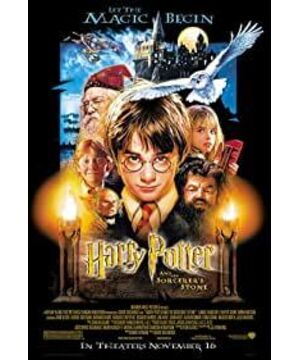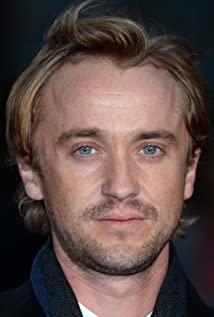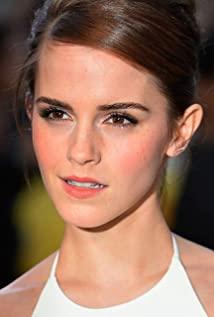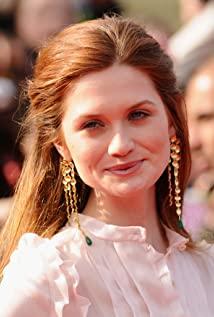I remember more than 10 years ago, when I played "Harry Potter and the Philosopher's Stone" on the TV, I simply thought it was the best movie in the world.
Written on 2020.8.14 for the fourth time
As an important chapter in the Harry Potter Chronicle that opened the world, "Harry Potter and the Philosopher's Stone" opened the door to the wizarding world with the simplest plot, and won the love of young audiences with its immature actor roles. But it is precisely the persuasive process that is too simple, which easily reveals the subconsciousness that cannot be hidden within the author's ontology.
Therefore, a question worth discussing is what kind of relationship the director is trying to establish with the audience, and what kind of audience exists in the director's mind.
"Muggle" and "Witcher"-the dual opposition of elitism
Start with Harry Potter's worldview-the dialectical relationship between man and magic.
Out of the need of dramatic conflict, it distinguishes real people into "witches" and "Muggles." Judging from the original setting of the original work, there is not much problem with this distinction.
But first of all, the true Muggles in the film are actually the Dudley family (Hermione became a wizard, not strictly Muggles). They are stupid, ignorant, and even hate wizards;
Secondly, a major processing of the original work by the movie is the use of some additional derogatory modifiers for Muggles, such as worst sort of muggles (the worst Muggles, Professor McGonagall describes the Dudley family), great muggles (irony , Hagrid describes the Dudley family), etc.; even if no modifiers are added, the tone will be emphasized specifically;
In addition, the film also frequently mentions family relationship (people's admiration for Harry, Ron, Marfo, and Hermione all refer to family), which proves that family origin plays a predictable and decisive role in the development of the final character; in addition, through repetition And formed a basic cognition that whether he can become a member of the Magic Academy depends on his talent.
These points of experience, the experience of watching a movie on the big screen, may be more intense than the text.
From a macro perspective, the director dissected the power structure and characteristics of the Harry Potter world, and finally divided the world into a civilian world and another world—similar to a utopian magical world, and the magical world can determine the fate of the real world ; In the real world, Harry's status is low, and in the magical world, he is world-famous; as to how the two worlds connect, the author's solution is very simple and rude-just go through a wall.
In essence, the director actually affirmed that Muggles and wizards are two extremes that cannot be transformed into each other. Similar to civilians and elites, they are a dualistic world, and they are also separated by their origin. Muggles look up to the wizard, and the wizard has an incomprehensible talent and perseverance to the Muggle.
There is another binary opposition in the film-Gryffindor and Slytherin, while the other two colleges have completely lost their sense of existence.
Regarding dual opposition, post-structuralists believe that dual opposition is not the most basic organization of human thought, but a processed product of Western thought.
In the process of repeated instillation and nurturing of binary oppositional views, in fact, we have fallen into the trap of Western metaphysics—not to mention, this is a children-oriented magic movie produced in 2000. What kind of recognition will it bring? Know the effect.
Illusion-Are we Harry or Muggles?
Althusser believes that our views of ourselves are not produced by ourselves, but given by culture. This point of view is extremely appropriate here. As a medium and cultural product, movies may be commonplace for fans of fandom, but they may already be behemoths in front of Harry Potter's low profile audience.
As a commercial film, "Sorcerer's Stone" hopes that the audience will "become" Harry, or "become" Ron and other people's "wizards". Furthermore, it hopes that the audience will look forward to the lifestyle of the kind of people represented by Harry and Ron.
After going back to the details, it is not difficult to find the film's repeated defense of this group of people.
First, Harry violated the regulations to chase Ma Fu on a broomstick in class, but was not punished. Instead, Professor McGonagall recommended him to be a chaser.
Second, Harry, Ron, and Hermione refused to obey orders to fight monsters in the basement, but Professor McGonagall gave each of them 5 points.
Thirdly, the four of Harry violated school rules to visit Hagrid’s cabin at night, and Professor McGonagall’s punishment was to find Hagrid to work (Harry finds Hagrid, how can he talk about punishment).
Finally, Dumbledore gave Gryffindor extra points at the Academy Cup presentation dinner.
From the perspective of human cognitive logic, Harry clearly made mistakes, did not mention punishment, and repeatedly praised him. Professor McGonagall obviously should not spoil the students of his college in this way. But the film succeeded in moving the audience through bitter tricks and appealing to sensibility, blurring the audience's judgment on the value of this issue, and finally stood uniformly on Harry's side.
Zizek proposed in the research of linguistics that cultural products, by constructing symbols, make the subject “castrated” by the symbol, fictitious and identify with the imaginary image, thus abandoning the subject itself and changing the subject’s desire. The desire to become a mirror image. On the other hand, Gramsci put forward a point of view from the cultural point of view, that cultural hegemony can be exchanged for the loyalty of the audience by acknowledging the interests of a part of the masses.
At this point in the analysis, there seems to be some suspicion of over-interpretation. This is JK Rowling's original intention, or the effect of director Columbus's processing. It is difficult to judge. But what you cannot deny is that its separation of Muggles and wizards, its brutal separation of the real world and the magical world, and its defense of Harry have all created a dualistic illusion, as a self-serving tendency. The audience is unwilling to divide themselves into the bad side.
However, as the majority of the world's 6 billion people, most of them are nothing but a dust in the world, without much superiority, nor are they from prominent nobles. Hogwarts’ wand symbolizes our ultimate yearning for an ideal world, and Harry may be there looking at us.
And we are just a Muggle in the real world.
View more about Harry Potter and the Sorcerer's Stone reviews











